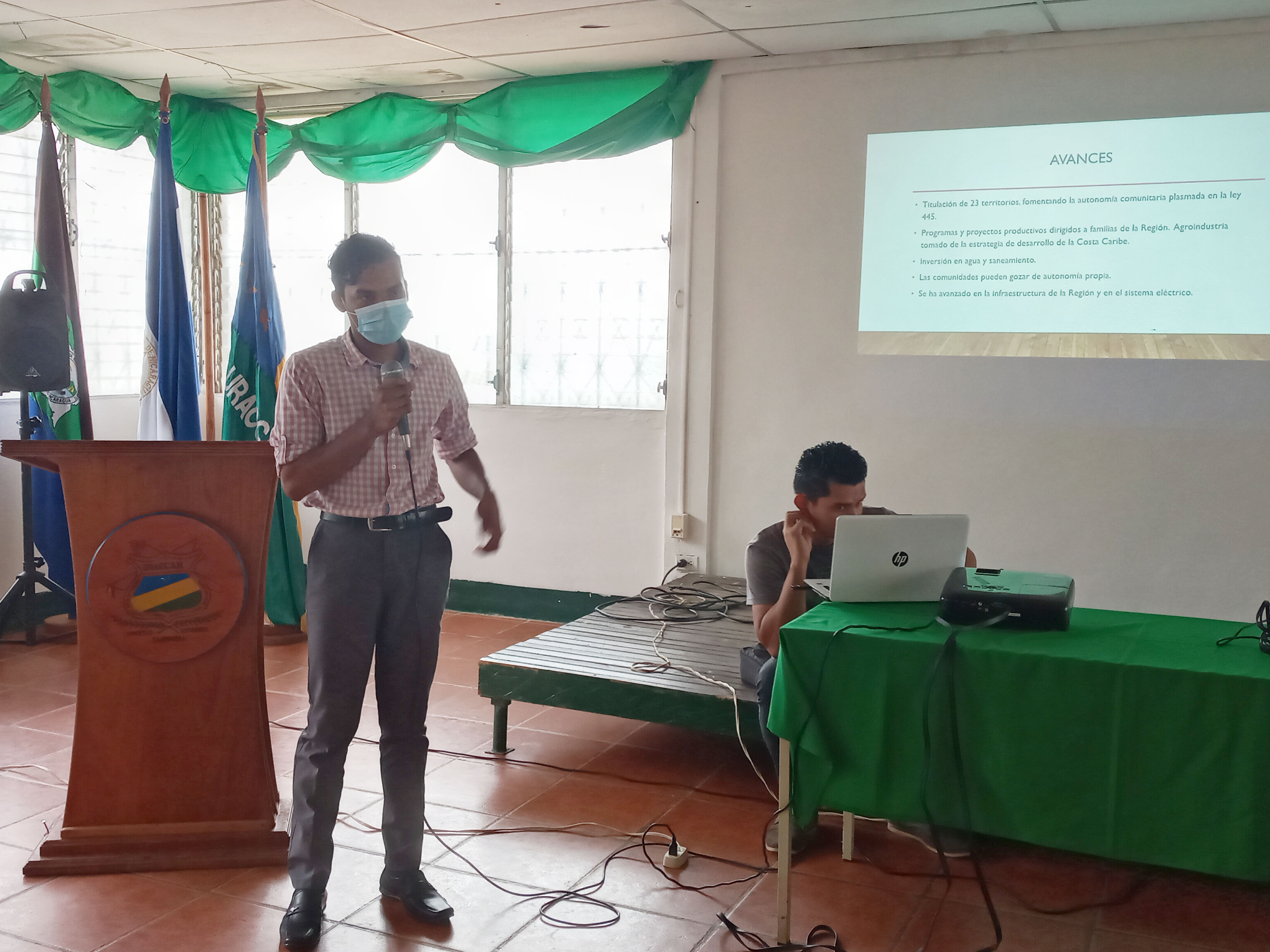
At URACCAN, students are always protagonists.
Achievements, advances and challenges of Regional Autonomy
As part of the celebration of the 26th Anniversary of URACCAN and 33 of the promulgation of Law 28, the Institute for Studies and Promotion of Autonomy (IEPA) held with students of the Sabatina modality a conversation about the achievements, advances and challenges of Regional Autonomy in these 33 years of operation.
The exhibitions were by finalist students of the Sociology degree with mention in Autonomy. He started the Bra. Jennifer Davis, with the presentation "Historical Background of the Regional Autonomy Process on nicaragua's Caribbean Coast"; continued the Br. Cristofer Vans, who shared the main achievements, advances and challenges of Regional Autonomy 33 years after the enactment of Law 28; and ended Gina Padilla, with URACCAN's contributions to the Regional Autonomy process.
Teacher Sesiah Davis, coordinator of the Regional Observatory for Multi-Ethnic Autonomy (ORAM-URACCAN), explained that the main idea of making these spaces is so that the student community can discuss the main advances that the regional regional regional process has made, "also so that students can be aware and reflect on the university's contribution to the autonomy process" Expressed.
The meeting was fruitful because participants had the opportunity to express and reflect on the evolution of the peoples of the Caribbean Coast, starting from an Autonomy Act that supports the rights and duties of the coastal population. The exhibition managers have been students with a long history of intercultural community accompaniment, guided by the IEPA, Davis said.
- Log in to post comments
- 23 views
